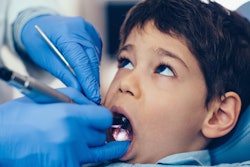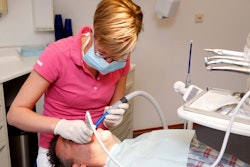Preventing tooth loss may be tied to reduced mortality and functional disability, according to findings published recently in the Journal of Prosthodontic Research.
A team led by Shiho Kino from Tokyo Medical and Dental University reported that improved oral health was also associated with maintenance of intellectual ability, the frequency of going out, and improvements in one's dietary lifestyle.
While previous studies suggest that oral health is tied to a variety of health outcomes, the researchers noted that opinions usually vary because of inconsistent findings. The researchers wanted to investigate the associations between between oral health status and multiple health and well-being indicators using outcome-wide epidemiology.
The team gathered data from the Japan Gerontological Evaluation Study. It categorized oral health status for the following: 20 teeth or more, 10 to 19 teeth with a dental prosthesis, 0 to 9 teeth with a prosthesis, 10 to 19 teeth without a prosthesis, and 0 to 9 teeth without a prosthesis. Health and well-being outcomes examined included physical and cognitive health, psychological distress, subjective health, social well-being, prosocial and altruistic behaviors, and health behaviors.
The researchers found that compared to those with 20 or more teeth, individuals with less than 20 teeth had a 10% to 33% higher risk of mortality, as well as a 7% to 10% higher risk of functional disability six years later. They also found that individuals with fewer than 20 teeth tended to go out less frequently and eat fewer vegetables and fruits (J Prosthodont Res, August 11, 2023).
Additionally, individuals with 0 to 9 teeth without a prosthesis were more likely to have a severe functional disability. Furthermore, they usually engaged in fewer intellectual activities and reported feeling more hopeless.



















